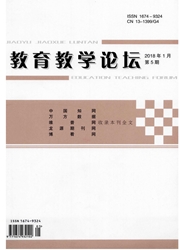

 中文摘要:
中文摘要:
牛的乳腺炎是喂奶的最普通、昂贵的疾病世界范围的牛。除了体的房间计数(SCC ) 和体的房间获得的牛奶(SCS ) ,象 interleukin-17 (IL-17 ) 和 interleukin-4 (IL-4 ) 那样的浆液 cytokines 可以也是为牛的乳腺炎的潜在的指示物。现在的学习被设计在中国荷兰的一种乳牛和内部蒙古的 Sanhe 牛在 SCC , SCS 和浆液 cytokines 上在牛的 IL-17F 和 IL-17A 基因调查单个核苷酸多型性( SNP )的效果,并且恐吓把奶牛的 mRNA 表示变化与 464 喂奶全部的不同 genotypes.ResultsA 作比较( 337 荷兰的一种乳牛和 127 内部蒙古的 Sanhe 牛)被屏蔽因为 SNP 鉴定和数据用牧群,同等值,季节和年的固定效果被分析结果揭示了那 SNP g.24392436C > 在 IL-17F 和 SNP g.24345410A 的 T > 在 IL-17A 的 G 在 Sanhe 牛(n=127 ) 在荷兰的一种乳牛(n=337 ) 并且在 IL-17 和 IL-4 上在 SCC 和 IL-4 上显示出重要效果。 SNP g.24345410A 的同型结合的 GG 遗传型> G 与结果显示的异质接合的 AG genotype.ConclusionsThe 相比有显著地更高的 mRNA 表示 IL-17F 和 IL-17A 能是乳腺炎抵抗和重要 SNP 的强大的候选人基因,这可能是对在奶店和双目的 cattle.Electronic 的乳腺炎的有用基因标记增补 materialThe 联机版本这,文章( doi:10.1186/s40104-016-0137-1 )包含增补材料,它对可得到
 英文摘要:
英文摘要:
Background: Bovine mastitis is the most common and costly disease of lactating cattle worldwide. Apart from milk somatic cell count(SCC) and somatic cell score(SCS), serum cytokines such as interleukin-17(IL-17) and interleukin-4(IL-4) may also be potential indicators for bovine mastitis. The present study was designed to investigate the effects of single nucleotide polymorphisms(SNPs) in bovine IL-17 F and IL-17 A genes on SCC, SCS and serum cytokines in Chinese Holstein and Inner-Mongolia Sanhe cattle, and to compare the m RNA expression variations of the cows with different genotypes.Results: A total of 464 lactating cows(337 Holstein and 127 Inner-Mongolia Sanhe cattle) were screened for SNPs identification and the data were analyzed using fixed effects of herd, parity, season and year of calving by general linear model procedure. The results revealed that SNP g.24392436 C > T in IL-17 F and SNP g.24345410 A > G in IL-17 A showed significant effects on SCC and IL-4 in Holstein(n = 337) and on IL-17 and IL-4 in Sanhe cattle(n = 127). The homozygous GG genotype of SNP g.24345410 A > G had significantly higher m RNA expression compared with the heterozygous AG genotype.Conclusions: The results indicate that IL-17 F and IL-17 A could be powerful candidate genes of mastitis resistance and the significant SNPs might be useful genetic markers against mastitis in both dairy and dual purpose cattle.
 同期刊论文项目
同期刊论文项目
 同项目期刊论文
同项目期刊论文
 期刊信息
期刊信息
